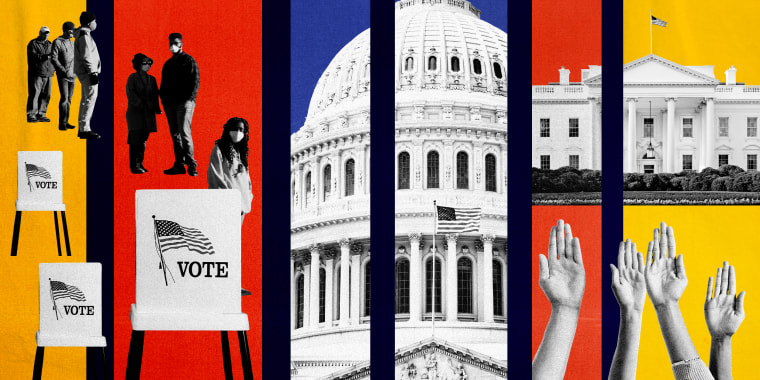In an unstable era of culture war eruptions and pandemics, Republicans and Democrats are having a debate that’s so old school it almost feels wholesome: What counts as a tax increase?
At issue is a 15% corporate minimum tax in the Inflation Reduction Act, which would apply to companies with over $1 billion in income in their financial statements, about 150 in total.
The first part of this debate is pure semantics. Sen. Joe Manchin, D-W. Va. has argued it isn’t a tax at all, merely closing a loophole that allows large profitable corporations to get away with $0 tax bills. Republicans point out that those $0 tax bills were perfectly legal for straightforward reasons and changing the rules is thus a tax increase that hits manufacturers especially hard.
The second argument is over who actually pays those corporate taxes, big business or the middle class. To Democrats, this is easy enough to answer. President Joe Biden ran on a pledge not to tax Americans making less than $400,000. He also ran on taxing large corporations more. This is a tax on large corporations. It is not a tax on individuals. The end.
But Republicans pointed to a Joint Committee on Taxation analysis that found the corporate tax provisions would at least indirectly affect a variety of income groups, from top to bottom. Thus, they argued, it breaks his tax pledge.
Democrats contend this is misleading on two levels. First, the specific analysis did not include benefits in the bill, including higher subsidies for Affordable Care Act recipients, lower prescription drug costs for seniors, and consumer tax credits in the energy section.
The second reason gets into a long-running dispute over the nature of corporate taxes themselves. The JCT finding isn’t that average Americans would see their individual tax rates go up, it’s that some of the tax increases on business would trickle down to workers and individual stockholders. Economic analysts debate exactly how much of corporate taxes come out of worker’s paychecks and benefits; the JCT puts the percentage at 25%.
Democrats have been transparent on this issue, having made clear in campaign after campaign that corporate taxes are not part of their pledge and, in fact, a key source of revenue for their agenda. But Republicans have a point that corporate taxes can have effects beyond a business’s bottom line. The great debate continues.

